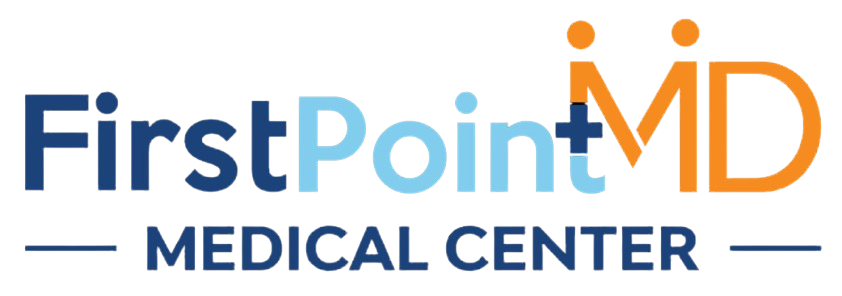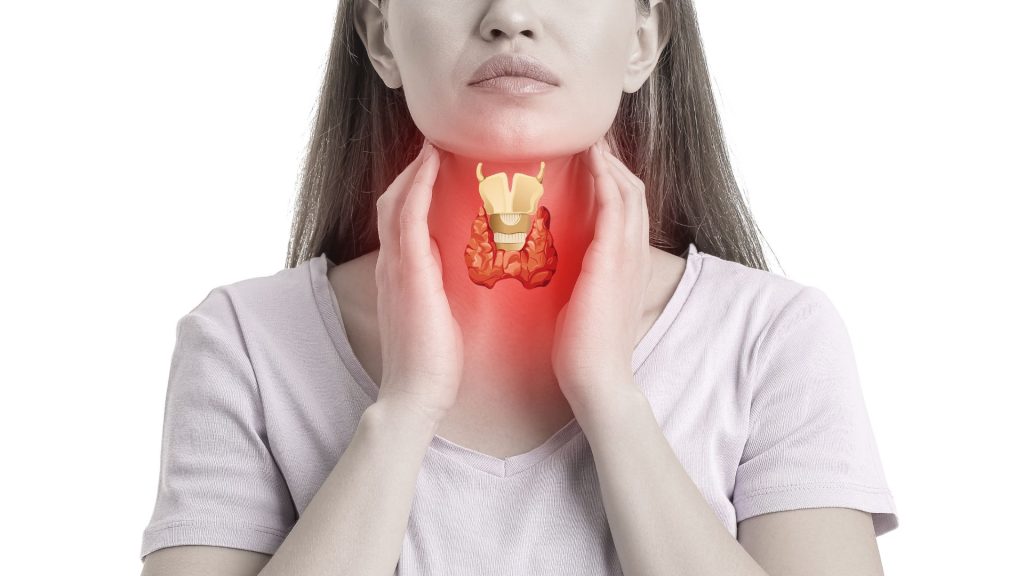At First Point MD, we believe precise diagnosis is the foundation of effective treatment. Thyroid disorder—whether underactive (hypothyroidism), overactive (hyperthyroidism), or autoimmune—affect millions of men and women worldwide. Proper lab testing is essential to detect issues early, guide therapy, and monitor outcomes. In this comprehensive article, we outline the best lab tests for diagnosing thyroid imbalances, explain what they measure, why each is important, and how gender, age, and other factors impact interpretation.
Why Accurate Thyroid Testing Matters
Thyroid hormones influence metabolism, heart function, body temperature, mood, energy, and more. Imbalances can cause symptoms like fatigue, weight change, hair loss, irregular heartbeat, menstrual disturbances, and cognitive issues. Without accurate lab testing, we risk misdiagnosis, delayed treatment, or overtreatment. Furthermore, men and women may present differently: women are more likely to develop autoimmune thyroid disease; men may underreport symptoms. Thus, a thorough lab panel, interpreted in the right clinical context, is crucial.
Core Thyroid Function Tests: The Essentials
These primary lab tests are foundational and are typically the first ordered when thyroid dysfunction is suspected.
| Test | What It Measures | What Abnormal Results Suggest |
|---|---|---|
| Thyroid Stimulating Hormone (TSH) | The hormone produced by the pituitary gland that stimulates the thyroid to produce T4 & T3. | Elevated TSH → suggests hypothyroidism (primary). Low TSH → may indicate hyperthyroidism or pituitary dysfunction. It is often the first test because TSH changes early. |
| Free T4 (Free Thyroxine) | The unbound, active portion of thyroxine in the blood—not bound by proteins—able to enter cells. | Low free T4 with high TSH confirms primary hypothyroidism; high free T4 with low TSH suggests hyperthyroidism. Normal free T4 with abnormal TSH may indicate subclinical disease. |
| Free T3 (Free Triiodothyronine) | The active thyroid hormone, often derived from conversion of T4. Free form is biologically active. | Elevated in hyperthyroidism; sometimes only T3 is elevated (“T3-toxicosis”) when T4 is normal. In hypothyroidism, free T3 is often less helpful unless conversion is impaired. |
Additional Tests for Detailed Assessment
To diagnose underlying causes, understand disease severity, or plan long-term care, these additional lab tests are valuable.
| Test | Purpose / What It Adds | Specific Use Cases / Gender Considerations |
|---|---|---|
| Thyroid Autoantibodies (TPO-Ab, Tg-Ab; also TSI or TRAb) | Help identify autoimmune thyroid disease: Hashimoto’s (hypothyroidism) or Graves’ disease (hyperthyroidism). | Especially important in women, because autoimmune thyroid disease is much more common. Also in patients with family history, or when thyroid dysfunction is fluctuating. |
| Total T4 and Total T3 | Measures both bound and unbound hormone. Less precise than “free” versions because binding protein levels can affect results. | Useful when lab only offers total hormone measures or when changes in binding proteins are suspected (e.g. pregnancy, estrogen therapy). |
| TSH Receptor Antibody (TRAb / TSI) | Detects antibodies that stimulate the thyroid (as in Graves’ disease). | Helpful in hyperthyroid patients, for diagnosis, or to predict severity or risk of relapse. |
| Reverse T3 (rT3) | Measures inactive form of T3—may accumulate when conversion to active T3 is blocked. Some clinicians use it to assess “T4-to-T3 conversion” issues. | Its utility is debated; rarely needed in routine diagnosis, but may help in complex cases, especially if symptoms persist despite “normal” other labs. |
| Thyroglobulin (Tg) & Thyroglobulin Antibodies (Tg-Ab) | Tg is used as a tumor marker in thyroid cancer follow-ups; Tg-Ab used to assess autoimmune reaction. | Not usually needed for routine hypo- or hyperthyroidism; more relevant in suspected cancer or with nodules. |
Imaging and Non-Lab Diagnostic Tests
Though lab tests are first line, sometimes imaging or functional tests are required.
-
Thyroid Ultrasound: To assess structure of the gland, detect nodules, cysts, goiter. Helpful in both genders.
-
Radioactive Iodine Uptake (RAIU) / Thyroid Scan: To see how much iodine the thyroid takes up; helps distinguish types of hyperthyroidism (Graves vs toxic nodules)
Lab values do not exist in a vacuum. Correct interpretation depends on:
-
Age: Reference ranges may vary. Elderly individuals often have higher “normal” TSH.
-
Sex: Women are more likely to have autoimmune disease; pregnancy, estrogen use alter thyroid-binding proteins, affecting total hormone levels.
-
Medications and Supplements: Certain meds (e.g. biotin, amiodarone, steroids) or supplements interfere with lab tests. Labs often warn about this.
-
Timing: TSH shows diurnal variation; often tested in morning for consistency.
-
Comorbid Conditions: Acute illness (“non-thyroidal illness syndrome”) may suppress TSH or alter hormone conversion. Liver, kidney disease, malnutrition also affect metabolism and binding.
Gender-Specific Aspects in Thyroid Imbalance Testing
Though the fundamentals apply to both men and women, some special considerations for each gender:
-
Women
-
Greater prevalence of autoimmune thyroid disease. Hence testing of TPO-Ab, Tg-Ab is often more relevant.
-
Pregnancy alters thyroid demands; reference ranges for TSH, free T4 differ. Must monitor more closely.
-
Influence of birth control pills / estrogen therapy on total T4, binding proteins.
-
-
Men
-
May present later, with more subtle symptoms (e.g. low libido, fatigue) which may be attributed to other causes. Routine screening may be overlooked.
-
Thyroid disease in men still affects cardiovascular risk, cholesterol, weight—so lab testing is just as important.
-
Recommended Testing Strategy: What First Point MD Suggests
At First Point MD, our approach combines best practices with individualization. A suggested algorithm:
-
Initial Screening
-
Start with TSH + Free T4 for most patients with suspected thyroid symptoms (e.g. fatigue, weight gain/loss, mood changes).
-
-
Add Items If Needed
-
If TSH is abnormal, add Free T3 when hyperthyroid suspected.
-
If autoimmune cause suspected (family history, fluctuating disease), test TPO-Ab (thyroid peroxidase antibody) and Tg-Ab.
-
If Graves’ disease suspected, do TSH receptor antibody (TRAb / TSI).
-
If symptoms persist despite “normal labs,” consider Reverse T3, check binding protein levels (thyroxine binding globulin, albumin), or evaluate for pituitary/hypothalamic causes.
-
-
Monitor & Follow Up
-
For diagnosed hypothyroidism under treatment: check TSH (and free T4 if needed) 6-8 weeks after starting or changing therapy, then every 6-12 months when stable.
-
For hyperthyroid therapy or after treatment (e.g. surgery, radioiodine): monitor free T4, free T3 and TSH periodically.
-
-
Special Situations
-
Pregnancy or desire to conceive: Use pregnancy-specific reference ranges; monitor more often.
-
Children / adolescents: Growth and development needs require careful interpretation.
-
Older adults: There is debate about how aggressively to treat mild TSH elevation; decisions must balance benefit vs risk (e.g. cardiac strain).
-
Common Pitfalls & Things Patients Should Be Aware Of
-
Relying on TSH alone: Many clinicians do, but some early/subclinical disease won’t show abnormal thyroid hormone levels, especially in hyperthyroid cases where T3 is elevated before T4.
-
Ignoring symptoms when labs are “normal”: Some patients feel poorly despite normal lab values. Clinical picture matters.
-
Interference by supplements / biotin: High-dose biotin (common in cosmetic/vitamin supplements) can falsely lower or raise certain thyroid test readings. Always inform physicians of supplement use.
-
Overtesting or mis-interpreting “subclinical” results: In mild TSH abnormality (subclinical hypothyroidism), treatment decisions depend on symptoms, risk factors (pregnancy, cardiovascular disease), not just lab numbers.
Putting It All Together: Example Case Scenarios
Here are two brief scenarios illustrating how lab tests are used in practice:
| Case | Lab Results | Interpretation / Next Steps |
|---|---|---|
| Woman, 35, fatigue, weight gain | TSH elevated (e.g. 6.5 mIU/L), free T4 low | Diagnosed primary hypothyroidism → begin levothyroxine, recheck labs in 6-8 weeks; check TPO-Ab to assess autoimmune cause. |
| Man, 50, weight loss, palpitations | TSH suppressed, free T4 high, free T3 high, TSI positive | Diagnosed Graves’ disease → hyperthyroidism work-up; treatment options include antithyroid medication, radioiodine, or surgery; monitor heart function. |
Summary
-
Accurate thyroid testing starts with TSH + Free T4, with additional tests (Free T3, antibody panels, TRAb) when needed.
-
Autoimmune causes are common—especially in women—and testing for antibodies helps.
-
For some patients, advanced/expanded labs (reverse T3, binding proteins) are relevant.
-
Labs must be interpreted in light of age, sex, clinical symptoms, medication use, and special situations like pregnancy.
At First Point MD, we emphasize a personalized approach: combining the best lab diagnostics with careful history, patient symptoms, and follow-up. With the right panel of tests and clinical context, thyroid imbalances in both men and women can be identified early and treated effectively, improving quality of life, mood, energy, metabolism, and long-term health.


